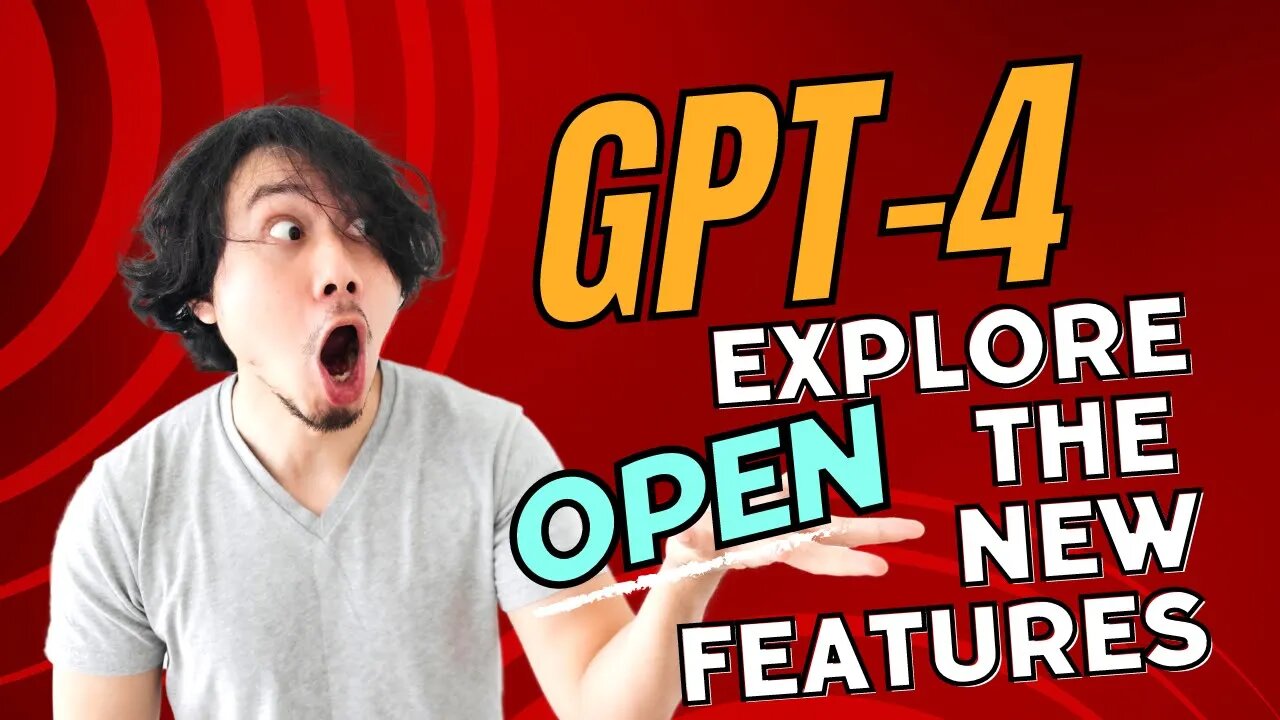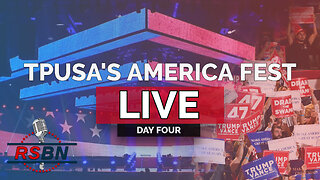Premium Only Content

Chat GPT 4 Has Arrived, Here Is What is New #chatgpt4 #new
OpenAI, a relatively new company established in 2015, is quickly gaining recognition as a household name in the artificial intelligence (AI) industry. With its increasingly popular Chat GPT chatbot and numerous collaborations with tech giants, OpenAI is at the forefront of AI innovation. Among these partners is Microsoft, a pioneering force in technology, which has adopted OpenAI's latest offerings and integrated them into its own products and services.
Microsoft has been quick to embrace AI technology, incorporating it into its Bing chatbot with mixed results. The initial release faced criticism for displaying paranoia, rudeness, and name-calling, leading to a temporary withdrawal and subsequent modifications. After a smooth soft re-release, the focus shifted to Microsoft's substantial support of OpenAI.
In 2019, Microsoft invested $1 billion in OpenAI, which included powering their AI model. Lacking the necessary technology, Microsoft began constructing a supercomputer for the startup and has invested over $10 billion since. This collaboration has enabled OpenAI to push the boundaries of AI technology, refining existing products like ChatGPT and introducing new, enhanced versions.
The latest upgrade, known as GPT-4, is generating excitement and anticipation for its promising improvements. Developers tout GPT-4 as a major enhancement, with faster and more accurate responses, image analysis capabilities, and deeper reasoning for more comprehensive replies. The company also claims the new model is "safer," addressing some concerns raised by AI skeptics.
Before the official release by OpenAI, users will have access to GPT-4 through Microsoft's integration into its Bing chatbot. Plans to launch the updated version are in place for as early as this week, and following this announcement, Microsoft's stock has increased by around 6%.
While the GPT-4 upgrade brings much excitement due to the expanding applications of AI, concerns arise from the secrecy surrounding the rollout. OpenAI is withholding information on what differentiates this model from version 3.5, likely reflecting the company's shift from a research-focused approach to a competitive, consumer-oriented one.
Despite the enthusiasm surrounding GPT-4, it is not exempt from criticism. Some argue that the model still exhibits logical flaws and biased thinking observed in previous iterations. As a result, many believe that the technology remains "untrustworthy" and incapable of handling crucial tasks, even after the extensive revamp.
In conclusion, OpenAI's advancements in AI technology, particularly with the development of GPT-4, have generated excitement and anticipation for the potential applications and improvements it offers. However, concerns about the secrecy surrounding the new model and lingering issues of trustworthiness and biases still persist. As AI continues to evolve, it is crucial for companies like OpenAI and Microsoft to address these concerns and maintain transparency, ensuring responsible development and deployment of such transformative technologies. Ultimately, the success of AI innovations will depend on striking the right balance between rapid progress and ethical considerations.
Hashtags:
#OpenAI
#Microsoft
#GPT4
#ChatGPT
#ArtificialIntelligence
#AIInnovation
#BingChatbot
#AIUpgrade
#AITransparency
#aiethics
Music- YouTube creators
Outside the Box
Patrick Patrikios
-
 LIVE
LIVE
Right Side Broadcasting Network
10 days agoLIVE REPLAY: President Donald J. Trump Keynotes TPUSA’s AmFest 2024 Conference - 12/22/24
4,072 watching -
 4:31
4:31
CoachTY
1 day ago $27.15 earnedCOINBASE AND DESCI !!!!
171K11 -
 10:02
10:02
MichaelBisping
1 day agoBISPING: "Was FURY ROBBED?!" | Oleksandr Usyk vs Tyson Fury 2 INSTANT REACTION
94.7K14 -
 8:08
8:08
Guns & Gadgets 2nd Amendment News
2 days ago16 States Join Forces To Sue Firearm Manufacturers Out of Business - 1st Target = GLOCK
118K88 -
 10:17
10:17
Dermatologist Dr. Dustin Portela
2 days ago $18.68 earnedOlay Cleansing Melts: Dermatologist's Honest Review
154K14 -
 1:02:20
1:02:20
Trumpet Daily
2 days ago $47.93 earnedObama’s Fake World Comes Crashing Down - Trumpet Daily | Dec. 20, 2024
110K69 -
 6:29
6:29
BIG NEM
1 day agoCultivating God Mode: Ancient Taoist NoFap Practices
80.4K20 -
 30:53
30:53
Uncommon Sense In Current Times
2 days ago $11.66 earned"Pardon or Peril? How Biden’s Clemency Actions Could Backfire"
91.9K10 -
 40:01
40:01
CarlCrusher
1 day agoSkinwalker Encounters in the Haunted Canyons of Magic Mesa - ep 4
83.8K10 -
 59:44
59:44
PMG
2 days ago $11.07 earned"BETRAYAL - Johnson's New Spending Bill EXPANDS COVID Plandemic Powers"
82.8K51